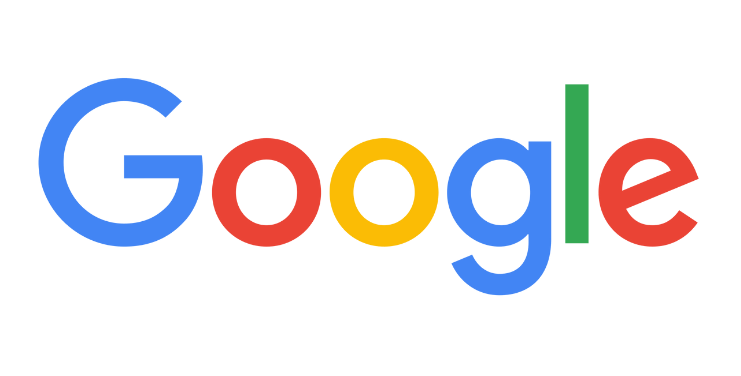KEY INSIGHTS
- Google is changing how it approaches HBCUs, working on fostering intentional partnerships.
- Derek McGowan, who joined the tech giant in March, is heading up the new efforts.
- The shift comes after Google was criticized following the firing of two prominent Black women.
Earlier this month, graduate students from across the country converged on University of California’s Berkeley campus to compete in the John E. Martin Mental Healthcare Challenge, hosted by Berkeley and Google, where teams presented strategies for how companies could put in place programs and benefits to support the mental health of employees.
Among the schools that participated were eight historically Black colleges — Alabama A&M University, Claflin University, Florida A&M University, Morgan State University, North Carolina A&T State University, Prairie View A&M University, Tennessee State University and Winston-Salem State University — marking a larger change in how Google is approaching HBCUs.
“We can throw money out there and say we’ve given money, we’ve done X, Y or Z,” Yolanda Washington, program manager for talent pipeline at Google, told The Plug. “We now have the opportunity to say ‘Hey, we’re going to meet you face to face, toe to toe,’ and be able to say ‘This is what we can do with you. We are here, we are supporting you, and we’re able to move forward and make those opportunities.’”
Derek McGowan, Head of Talent Pathways & Partnerships at Google, said the focus at Google was previously on building pipelines to HBCUs, but now they are shifting more to creating intentional partnerships.
“A pipeline is a straight line,” McGowan told The Plug. “There might be things that clog a pipeline, make you quit and make you change your mind about what you were thinking you could do.”
“A pathway is meeting you where you are, putting you in that position, in that place, guiding you as a partner and a trusted ally,” he continued. “Your pathway might be going to a Berkeley mental health program, learning about what your projects and your capabilities are and now saying, ‘Hey, at Google here’s a potential pathway for you to enter Google.’ That’s different than saying, ‘If you don’t have this, this and this, then we’re not going to call and talk to you.’”
Before March, McGowan’s position, which he described as straddling talent acquisition and DEI, did not exist at Google.
Just a few months prior to him joining the company, Google was in a firestorm of controversy after the firing of two prominent Black women, recruiter April Curley and AI researcher Timnit Gebru. The firings led to HBCU 20×20, an organization that connects students and graduates to jobs and internships, to end their partnership with Google because of allegations of discrimination by the women.
McGowan did not directly address the firing of Curley and the subsequent controversy, but said he was looking ahead.
“The focus is not on, for my part, not as much as what happened, but what we’re doing to make things better for everyone,” he said.
According to Reuters, Google is under investigation by California’s civil rights regulator for its treatment of Black female workers.
Just 4.4 percent of Google’s U.S. workforce is Black, according to their 2021 diversity annual report, far short of the 13 percent share of the American labor force Black people currently constitute. The company’s diversity report points to its efforts with HBCUs as a way to increase the representation of Black Googlers.
One of those efforts is the Grow with Google HBCU Career Readiness Program. Launched in October 2020 in collaboration with the Thurgood Marshall College Fund, the program brings the company’s training tools to schools’ career centers. Google committed more than $1 million to these centers.
Another effort came this summer, when Google gave a total of $50 million to 10 HBCUs, with each one receiving an unrestricted grant of $5 million to put towards scholarships, building tech infrastructure on campuses, developing curricula and career readiness programs. It was Google’s largest financial commitment to HBCUs to date.
In September of this year, Google announced the recipients of its second $5 million Google for Startups Black Founders Fund. Eleven of the 50 grantees, nearly a quarter, were HBCU graduates.
“HBCU 20×20 supports and encourages entrepreneurship within the HBCU and Black community. We are proud of the HBCU founders who were selected to participate in Google’s program and wish them all the best in their endeavors. We still, however, encourage Google to do the work internally to ensure they are fostering an inclusive community and advise starting by righting the wrong done to April Curley and Dr. Timnit Gebru,” Nicole Tinson, CEO of HBCU 20×20, said in a statement to The Plug.
Google for Startups also supports the $1 million Venture Capital Lab Fund run by HBCUvc, which will give HBCU students and alumni hands-on investing experience.
In 2022, McGowan said Google will be revamping its Tech Exchange program, which brought students from minority-serving institutions to Google’s campus in Mountain View, California, to learn directly from the tech giant’s employees. The company is looking at how to make the program less location-dependent for next year.
The company is also currently piloting spaces at five HBCUs they are calling Google Annexes, which may upskill students and professors with tech and knowledge directly from Google.
There are also plans for Google to help the Monterey Jazz Festival include HBCUs in the new year. McGowan said his team will also be working with the White House Initiative on HBCUs to do something not just for students, but also the leaders of some of the top HBCUs.
A considerable amount of HBCU programming is coming down the Google pipe, but ultimately the effectiveness of this new approach will be seen if new voices are hired and retained.








